Photographs by Vladimira Kotra
Interview by Maria Serena Bongiovanni

The human body has thousand and thousand faces, we can have different ways of living with it as male, female, both them.
However there is a universal question: who am I?
Through the constellation of intimate portraits and the personal story in Chimera, we can have an insight into the reflections about identity. Chimera is an author book, where every detail, type of paper, framing, and the whole play with duality and contrast has its own deep meaning. It’s full of precious images that document the search for identity. In this interview, I had the pleasure to meet the artist – Vladimira Kotra and speaks about her project and the impact of immersing herself in this research.
The artist

Vladimira Kotra (1990, Frýdek-Místek, Czech Republic) – graduated at the Institute of Creative Photography in Opava (CZ), finalist in the Portrait category of the 2016 Czech Press Photo Award. The book was shortlisted in Kassel Dummy Award 2018 and Self Publish Riga 2018 and it was chosen as a finalist of Photo book showcase 2018 at Singapore International Photography Festival.
First of all, who are you?
I’m a photographer that likes to push the boundaries of human thinking, be it for a greater tolerance, openness or to what we consider as truths that are set in stone.
What is your project about?
Chiméra is a photo project that authentically, sometimes rawly, captures the feelings of an intersex woman, mistakenly perceived as a man since childhood.
At the age of 27, the book’s protagonist woke up one day feeling that she is in fact a woman. She’s lived for two years as transgender, but before one surgery, doctors found out that her body contains genetic informations of both man and woman, so she is intersex. Two twin embryos of opposite genders in the early stages of pregnancy merged into one. Gabi has more organs with female genome than with male one.
For me, the project is more about a search for identity, truth and happiness, about chaos, abnormality and about a lot of contradictions that everyone bears within.
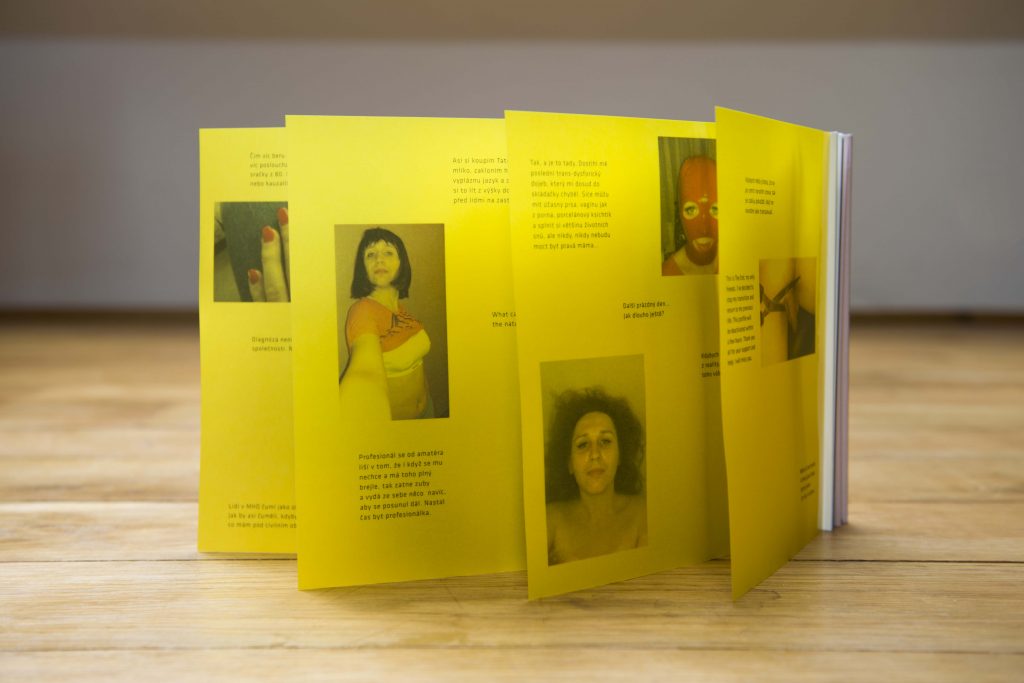
“The project is more about a search for identity, truth and happiness, about chaos, abnormality and about a lot of contradictions that everyone bears within”
What are the questions behind your work?
I’m interested in people with different lifestyles than my own. I spend time thinking about their life path, I let myself be absorbed in their different world and thanks to that, I reflect on my own life. Photos that emerge can mediate this world to others. With people, I’m most interested in their stories, experiences and in their beliefs. So my next book, that I’m working on, will contain more text than Chiméra.
How did you discover this story?
The protagonist Gabi, formerly Pavel, was a close high-school friend of my ex-husband. He had been visiting us and they had been talking politics, trading and other manly topics. And then, one day, after years of searching and stylization into something, he realized he’s not a man after all.
I think that I didn’t choose this story, it chose me. I offered Gabi to document the transformation and she agreed.
At the beginning, I was spending more time with her than my husband and for the first time, I was taking pictures of someone that actually enjoyed it.
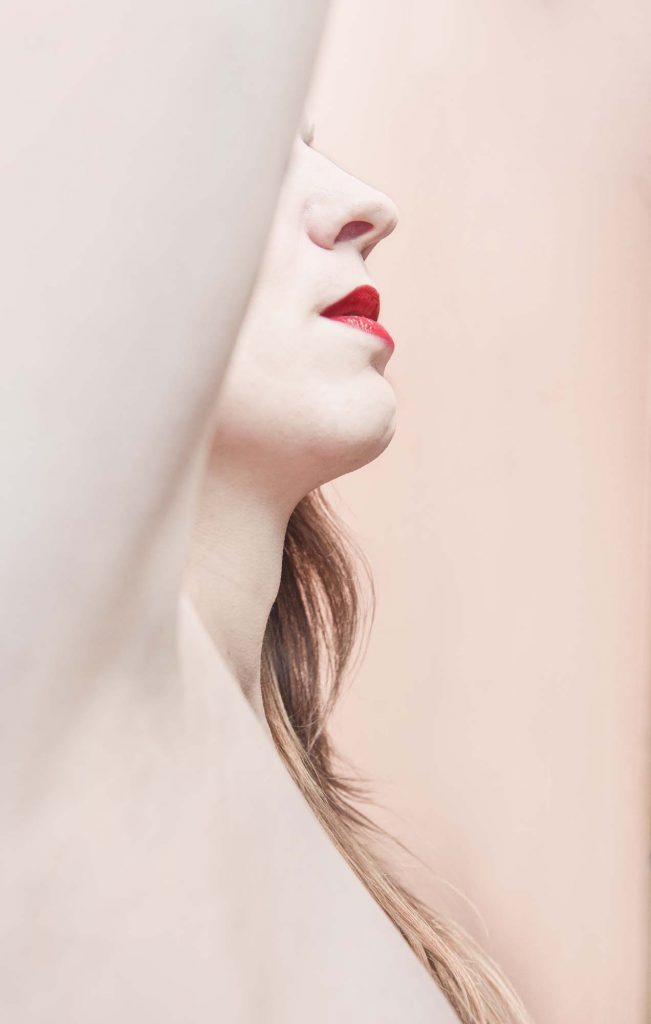
Who is Gabi?
Gabi had some difficult time during her early life as she’s never belonged to any social group. She’s been reading encyclopedias since childhood, at the age of 12, she was making her own explosives as she had very high IQ. Her father left her when she was a child, at the age of 18, her mom left her to work abroad and she hasn’t seen her since. After that, she’s been experimenting with drugs and sexual practices. In the end, she married and settled, but she still wasn’t happy.
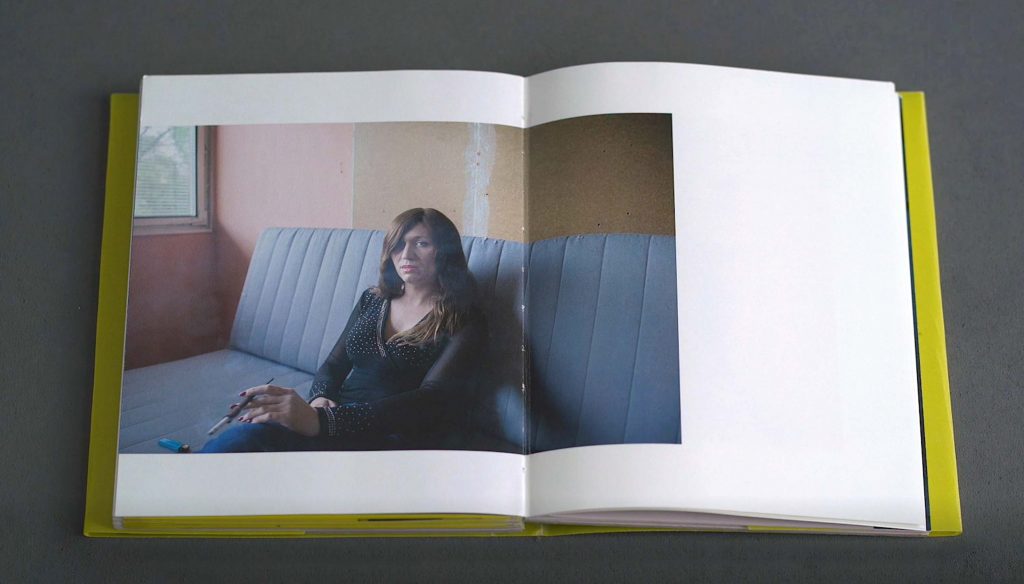
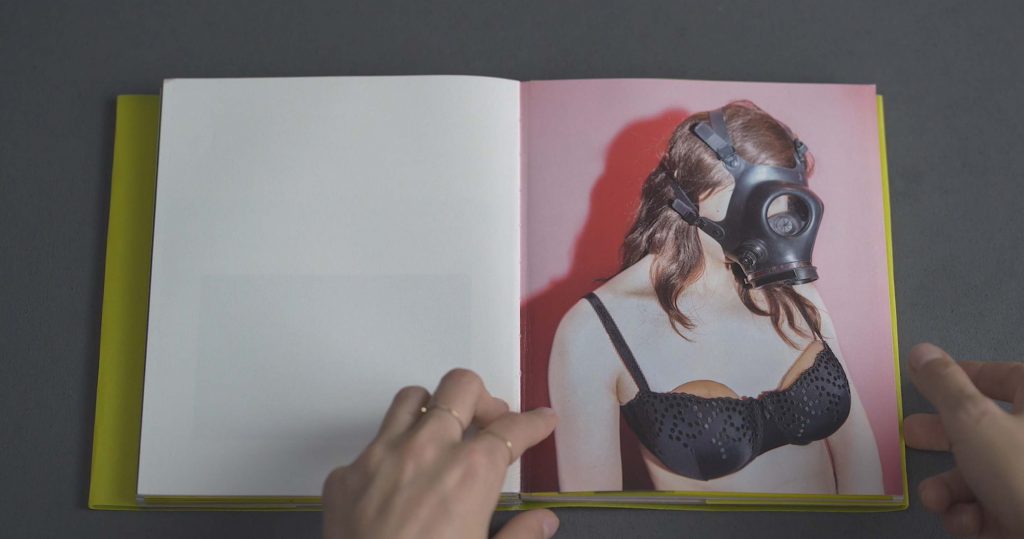
The Chimerism
What does it mean CHIMERA?
Chimerism is a condition whereby a person has not one but two complete genomes in their body. Figuratively, it refers to monstrosity, abnormality and deviation.
What does it mean to you? Do you feel involved on it or do you have a journalistic point of view?
So, I think I was consumed by the project too much. I was discussing transgender topics with all my friends, I was staring at people on public transport, examining male and female characteristics and thinking about what does being a woman mean to me.
Personally I was trying to be supportive to Gabi and I truly believed in happy ending of that story. But after 6 months after the start of her transformation, the euphoria turned into depression and hatred of her own body. Gabi started to publish statuses full of despair and futility on facebook every day. One morning, I discovered there a farewell letter where she was describing her reasons for suicide. I broke down because of it. But thanks to her sharing it on social network, we managed to find her in time. She was in a bad condition, but still alive.
The approach to photography
What is today’s challenge for a photographer?
Personal projects have always been more important to me than commercial photography, so I’m not as good at it as I’d wish. The challenge is to be able to combine both in a way that you have money to pay rent and also enough time for personal projects, friends and family. I don’t have any deadlines for them, I enjoy the journey, but if I could choose, I’d spend my time only on projects that make deeper sense to me. This is an idealistic wish of every artist.
What are your sources of inspiration?
My sources of inspiration are people, philosophy, science, art. The life itself. I have an inquisitive mind that brings me to a lot of interesting topics but I have a bad memory, though.
Maybe that’s why I feel the need to make things permanent with photography.
Do you think photography can make people more aware?
I believe so. People close their eyes to a lot of things, they don’t want to see problems that we can face, and unfortunately, they don’t think about a lot of things by themselves. Then I believe that when a photographer takes on a topic in the right way, he’s able to portray it to people better. That’s why I like the combination of text and photography, where both means can complete each other and it’s therefore not necessary to be able to understand stories just by looking at pictures. It’s important for me that my work is not just about the visual but also about making people think.
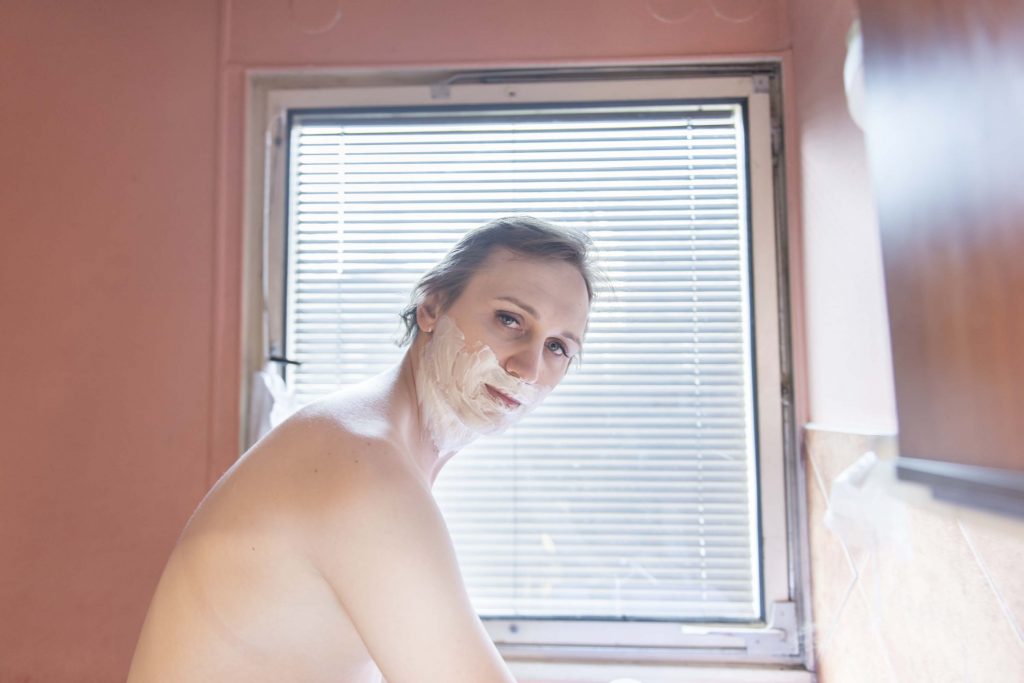


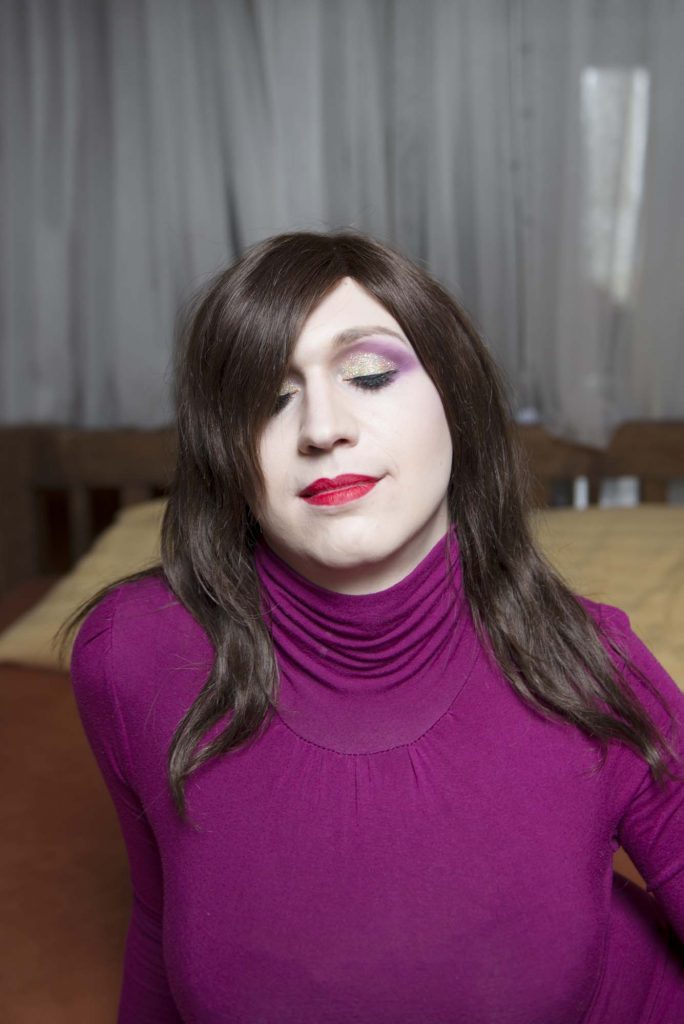
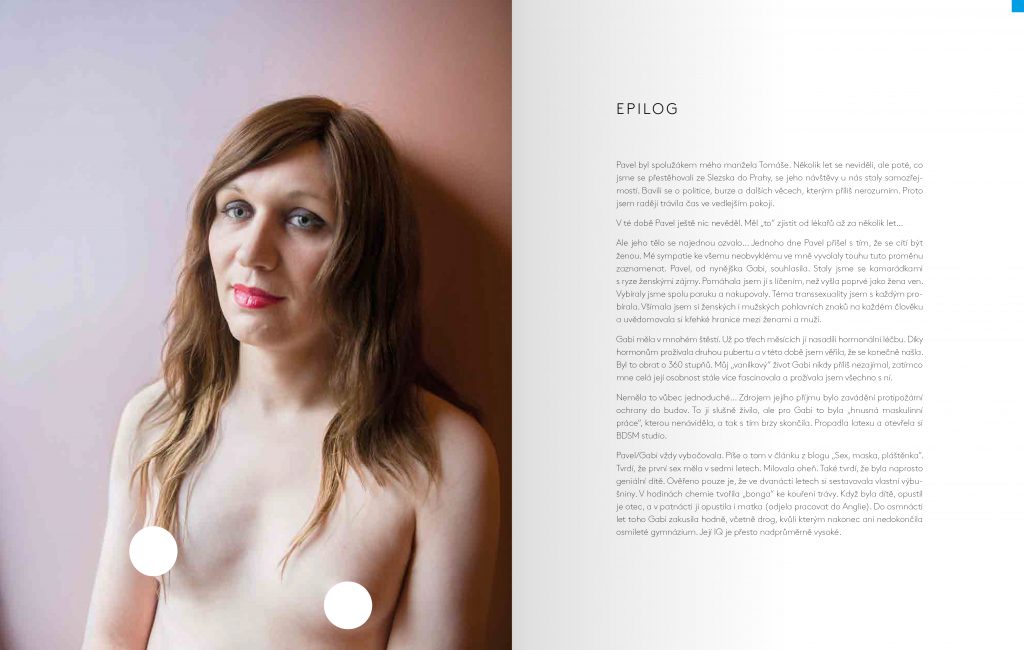
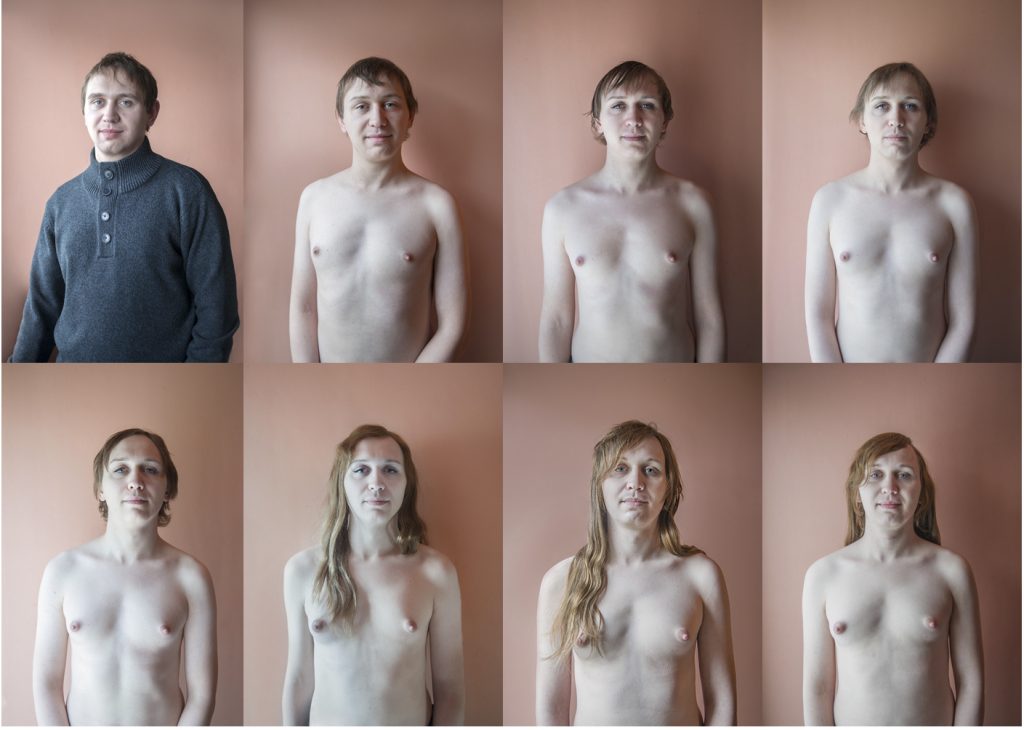
you are different,
you don’t fit in,
searching,
and one day you realize…
… that you have found it.
Support CHIMERA
The Chimera Dummy Book travelled around the world last year.
Thanks to it success in three dummy photo books award it visited 18 festivals in 13 countries of the world.
Now it’s available in limited edition but it’s time to publish!
You can support the project with a donation here until November 28.
Official website:
www.vladimirakotra.cz.
Photo credits:
© Vladimira Kotra “Chimera”
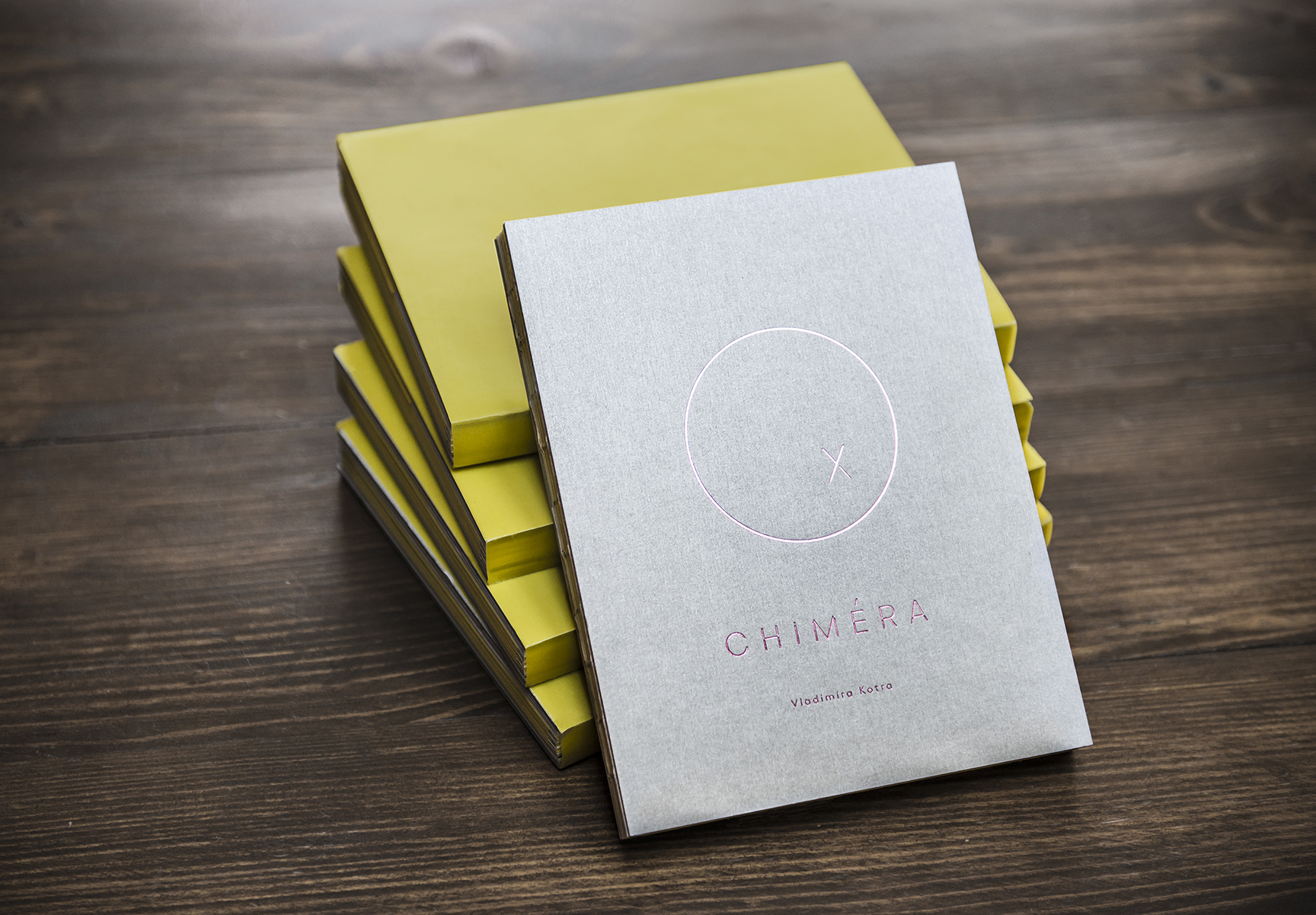
Comments are closed, but trackbacks and pingbacks are open.